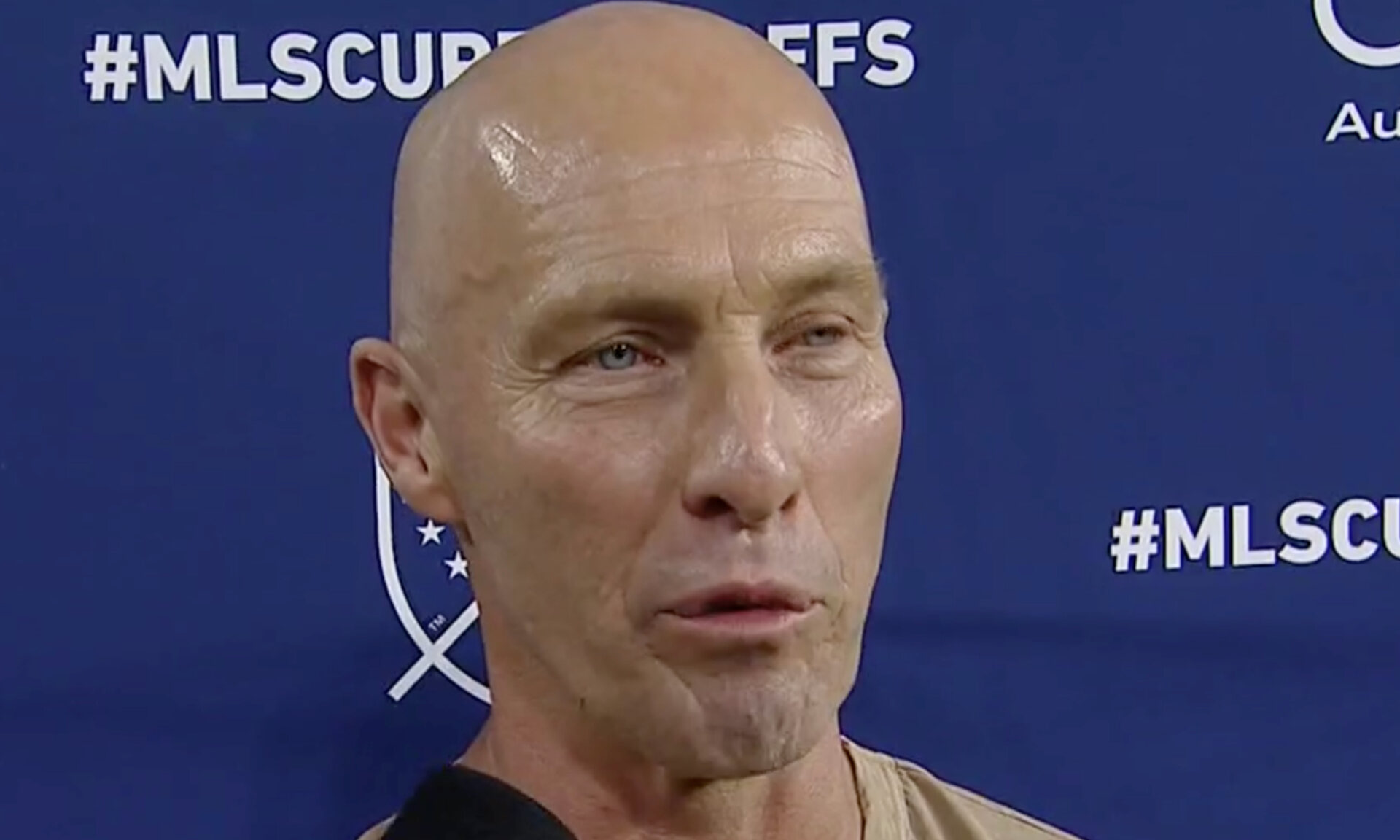This Soccer Coach's Answer Should Get Turfed
I always find it interesting when people in the public eye lose their cool when they're being interviewed by the media. I don't take any delight in it when it happens, but I do usually examine why it did and how they should have handled it.
Last week it happened again and just like virtually every other case, it shouldn't have.
Sometimes people who get their backs up to a question from the media think they look tough by taking issue with the reporter who asked it. Maybe it's just me, but I think they look stupid.
The Interview
Last Friday morning, I was up early and putting some final touches to a presentation on social media I would be making later than morning at a conference in Red Deer, Alberta.
I had the TV on in my hotel room and was keeping an eye one of the morning sports highlight shows. They were replaying the end of an interview done the night before with Bob Bradley, coach of Los Angeles FC. The interview was done after Bradley’s team won its playoff game in the Major Soccer League (MLS).
Watch how the interview on ESPN ends.
What He Should Have Said
I always shake my head when athletes, coaches, politicians, business leaders or others get upset by questions from reporters and loose their cool. Those in sports are the worst because quite frankly, they normally only get softball questions and rarely have to answer anything close to being difficult. Maybe that’s why Bradley reacted like he did.
It would have been so easy for Bradley to answer the question much differently. Once again, the question from the reporter, which was a totally fair one, was about one of Bradley’s star players. The reporter referenced the player’s struggles in big games in the past, suggesting questions had been asked about his performances in those games.
Bradley should have answered in any of the following ways:
“Well I don’t know about what happened in the past, but in tonight’s game……”
“Critics have the right to say what they want about games he’s played in the past, but tonight….”
“I’m not interested what happened in the past. What I can tell you is, tonight he was ….”
All these replies that Bradley should have used include bridges. A bridge is a short set of words or phrase that shows the reporter and their audience that you understand the question, but you really don’t want to get into the negative aspect of it. Instead you use the bridge to get to your much more positive answer.
In most cases, a reporter will leave it at that, feeling that although you haven’t exactly answered the question it was close enough.
Get Lost!
I’ve seen people being interviewed respond to a question by saying something like “That’s a pretty stupid question.” I always tell people I do media training for that it’s not your right to question a question, it’s your job to answer it. Besides, it just gets the reporter angry or embarrassed and that’s rarely a good thing.
I’ve also seen some people tell a reporter they’ve just asked a stupid question and then inform the reporter the question they should have asked. That also isn’t the best tactic because regardless the question the reporter asks, the person being interviewed should find a way to use a bridge to get to the answer they want to give. It’s simple, but highly effective.
Bradley has been around soccer for decades. He’s a former player and coach of both the US and Egyptian men’s national teams. He had a chance to give a garden variety answer, but instead wanted to browbeat a reporter, thinking it was the best way to defend his star player. It wasn’t. He looked stupid.
Right after the outburst, one of ESPN’s commentators in the booth basically defended Bradley, essentially saying it was a reasonable defence of his player.
With sports announcers like that around, there’s no wonder a coach like Bradley can get away with such stupid responses.
Sign Up For My Blog
Each week I'll have thoughts and tips on dealing with the media, social media updates and more. Sign up to get it delivered to your inbox and when you do you'll receive my e-book on media relations called Bulletproof Your Brand.
Well said, my friend. Sometimes the questions are dumb but responding in the way the coaches and athletes sometimes do shifts to dumbness-factor totally onto their own shoulders. Justin Verlander, future Hall of Fame pitcher, 21-6 this year, just lost again last night for an 0-6 record in World Series play. I haven’t seen any video of it yet but I’m certain he got some difficult questions, some he believed were stupid, But I’ll go out on a limb here and predict he handled it with dignity and class.
....Which is why the media, up until now, has gone easy on Verlander for not being able to produce in the World Series. I think a lot of the media's wrath relates to how likeable a player is or isn't. Verlander is well liked, so he gets off lighter. His lack of success is mentioned in passing. Joe Buck and the crew on Fox were even making excuses for him last night.
-Grant


Commentary